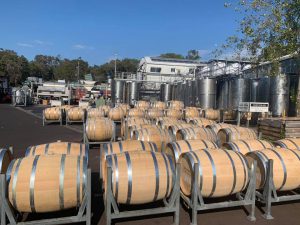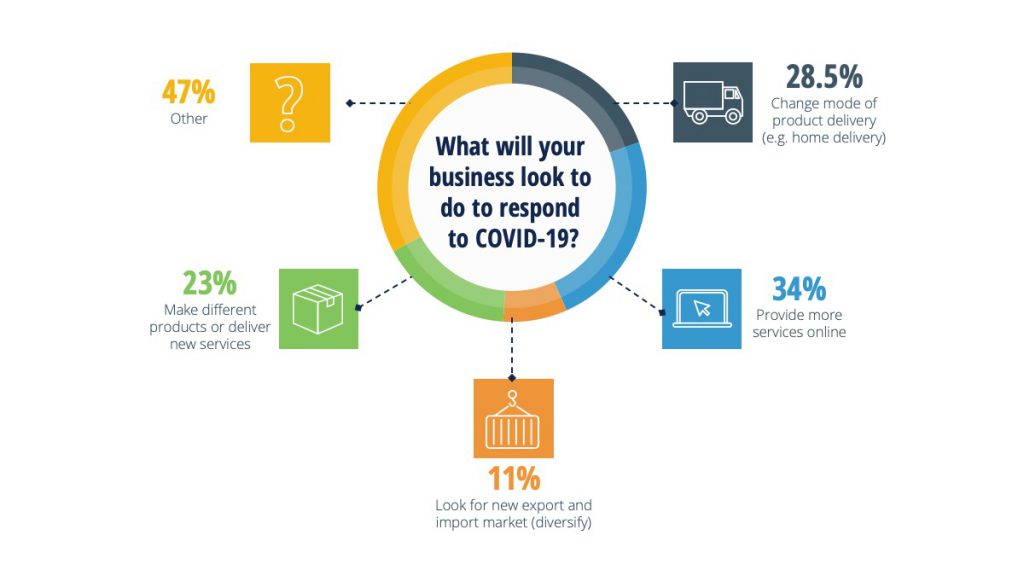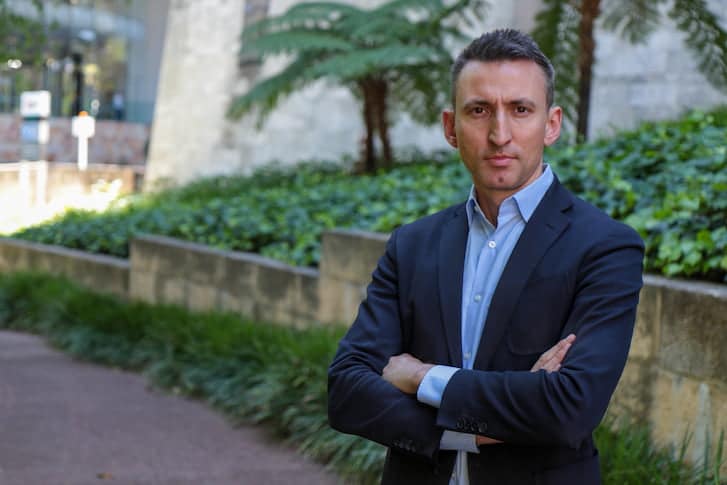More than four in five WA businesses have already taken measures to adapt to the COVID-19 crisis.
Results from the CCIWA Business Impact Survey show local companies are fighting back, whether by pivoting toward new products, shifting online, or enabling home delivery for the first time.
More than a quarter of WA businesses (26 per cent) are planning to make capital investments to support and develop these new capabilities.
Businesses are also shifting to work-from-home (58 per cent), reducing working hours (56 per cent) or introducing more flexible shifts and duties for their employees.
However, for many, the practical options to adapt are limited. The CCIWA will continue the survey to better target government for the best outcomes for WA businesses and our community.
Businesses look to supply opportunities
New opportunities exist for manufacturers that can retool and scale up to manufacture personal protective equipment (PPE) and other priority health equipment.
ICNWA is helping the WA Government find local businesses that can step up to meet new supply demands via the ICN Gateway.

Wise Wine quickly transformed production to meet demand for hand sanitiser.
Businesses planning to manufacture PPE in WA can also apply.
Local distilleries like Wise Wines, at Eagle Bay, have already transformed to meet demand.
In recent weeks, Wise Wines Head Distiller Greg Garnish converted from operating as a winery that was distilling gin into a winery that now makes ethanol for use as a hand sanitiser.
And that has helped Mr Garnish to keep employees working at a time when he may otherwise have been put in a tough position.
It certainly helped that it wasn’t a big leap for Wise Wines to simply change the type of alcohol it produced.
But it was also a testament to the team’s ability to quickly refine its process to allow it to produce about 2000 litres of ethanol in the first two weeks.
Mr Garnish said Wise Wines’ hand sanitiser was being sold at $40 for a 700 ml bottle.
“We are dropping our price as we become more and more efficient,” he said.
“What we are doing is crazy, but it’s out of need. I’ve pulled apart half a brewery and used all sorts of specialist tools.
“Every day we manipulate it a little bit more. We’ve doubled our production just from one still in the last eight days.”
Pushing through red tape
Mr Garnish said the move into hand sanitisers had come after discussions with Local Government and the Australian Taxation Office, both of which had to approve the change.
But he was disappointed at the red tape that he had discovered when trying to offer the sanitiser to hospitals. They had refused because Wise Wines’ product had not gone through the Therapeutic Goods Administration’s approval process.
“We’ve donated probably four or five hundred bottles to chiropractors, physiotherapists, schools, day care centres, and old people’s homes to make sure everyone’s got it,” he said.
“Our stuff is food grade. So we can sell it to anyone that wants to buy it. But, for the hospitals to buy it, it has to be hospital grade and be proven to be hospital grade.
“It takes a minimum of a year to get TGA approval, by which time this should all be over and we will want to make wine again.”
Wise Wines isn’t the only Margaret River winery to have turned its attention to hand sanitiser. Mr Garnish said most of the wineries in the area had done the same and his team had worked around the clock to allow the business to change direction so quickly.







